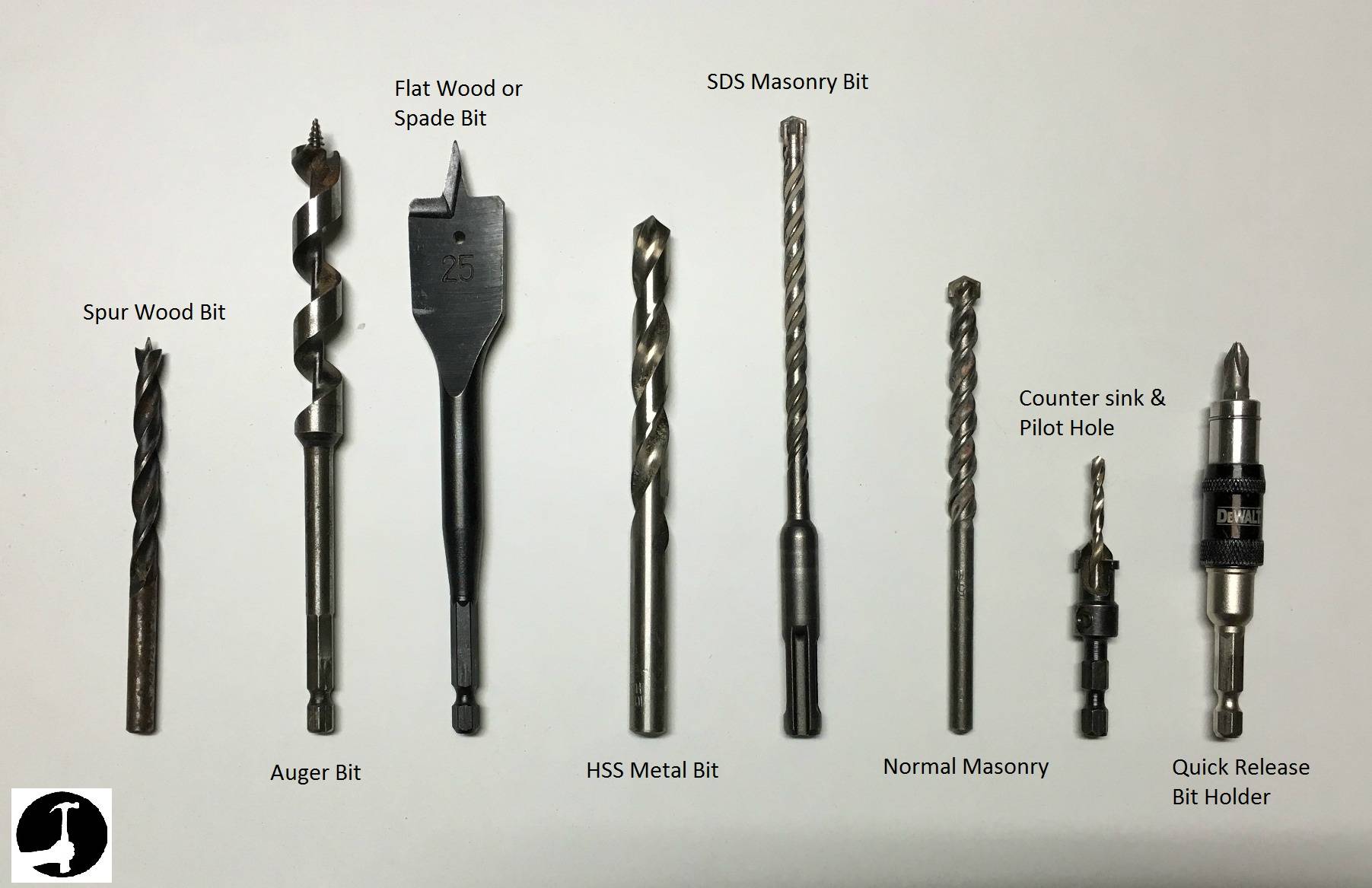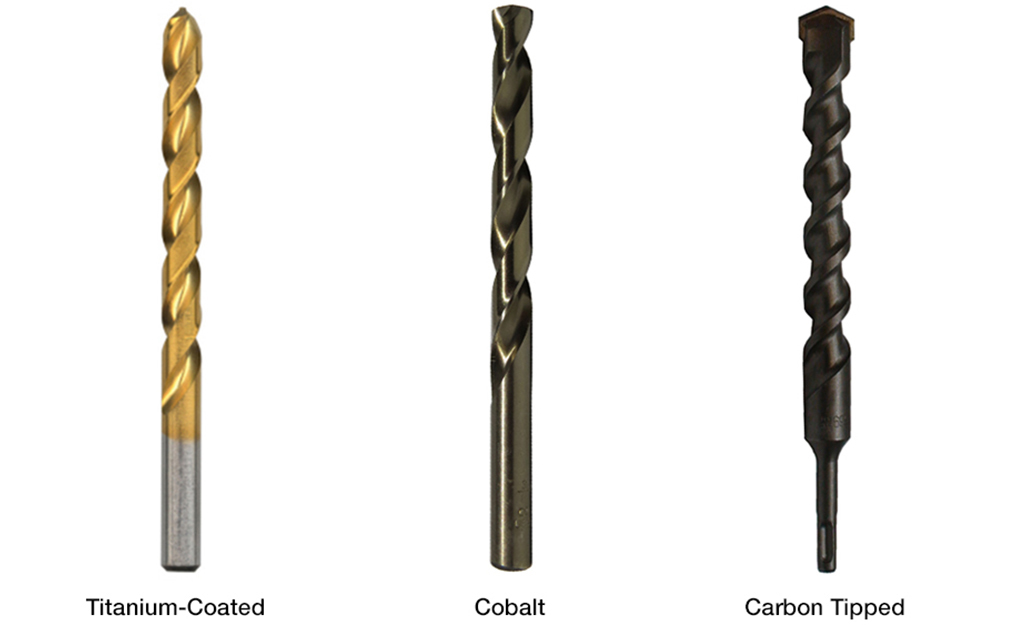Can metal drill bits be used for masonry? If you’ve ever wandered into your dad’s workshop or watched a DIY show, you might have seen him using metal drill bits for wood, metal, or even plastic. But can they handle the tough job of drilling into masonry? Let’s dive into this fascinating topic and find out if these versatile tools can conquer the world of bricks and concrete.
Masonry is known for its durability, requiring specialized tools for drilling holes. Metal drill bits, designed for softer materials, might not be up to the task. However, every DIY enthusiast knows that sometimes you have to work with what you have. So, should you give metal drill bits a go, or is it better to invest in the right tool for the job? Let’s explore the various factors that come into play when deciding.
From matching the right drill bit to understanding the type of masonry you’re working with, discovering if metal drill bits can meet the challenge of masonry is an exciting journey of exploration. So buckle up, grab your hard hat, and let’s navigate the world of drilling into bricks and concrete to uncover the answer to this burning question. Let’s dive right in!

Can Metal Drill Bits Be Used for Masonry?
Masonry projects often require specialized tools to get the job done. When it comes to drilling into materials like concrete, brick, or stone, you may be wondering if you can use your trusty metal drill bits. After all, they’re durable and versatile, so it’s natural to wonder if they can handle masonry as well. In this article, we will explore whether metal drill bits can be used for masonry projects and provide you with all the information you need to make an informed decision.
1. Understanding the Difference Between Metal Drill Bits and Masonry Drill Bits
Metal drill bits and masonry drill bits may look similar, but they are designed for different purposes. Metal drill bits are typically made from high-speed steel (HSS) or cobalt and are ideal for drilling through materials like wood, plastic, or metal. On the other hand, masonry drill bits are specifically designed to drill into hard and brittle materials such as concrete, brick, or stone. They are made from tungsten carbide, a highly durable material that can withstand the tough demands of masonry projects.
Using a metal drill bit for masonry can lead to several problems. Firstly, metal drill bits are not designed to withstand the high levels of heat and friction generated when drilling into masonry. This can cause the drill bit to become dull quickly or even break. Secondly, masonry drill bits have a special flute design that helps remove the debris created during drilling. Metal drill bits lack this design, which can result in clogging and reduced drilling efficiency.
2. The Importance of Using the Right Drill Bit
Using the right drill bit is crucial for the success and efficiency of your masonry projects. While metal drill bits may seem like a convenient choice, using the appropriate masonry drill bit will yield much better results. Masonry drill bits are specifically designed to handle the challenges posed by hard and brittle materials. They have a carbide or diamond-tipped cutting edge that can easily penetrate masonry surfaces, ensuring clean and precise holes.
Additionally, masonry drill bits come in different sizes and lengths to accommodate various project requirements. Whether you’re drilling holes for anchors or creating openings for pipes, using the right drill bit size is essential for achieving the desired result. Investing in a set of high-quality masonry drill bits will save you time, money, and frustration in the long run.
3. Benefits of Using Masonry Drill Bits
Using masonry drill bits instead of metal drill bits for your masonry projects offers several benefits. Firstly, masonry drill bits are specifically designed to handle the tough demands of drilling into concrete, brick, or stone. They have a longer lifespan and can stay sharp even after extended use. This ensures that you can complete your projects efficiently without frequent interruptions due to dull or broken drill bits.
Secondly, using masonry drill bits improves the overall quality of your work. The precise and clean holes created by these specialized drill bits allow for smoother installation of anchors, screws, or pipes. This results in a stronger and more secure finished product. Whether you’re working on a DIY project or a professional construction job, the quality and reliability of your workmanship are crucial.
Lastly, using the right drill bit ensures your safety. Masonry drill bits are engineered to provide stability and prevent slipping or wobbling during drilling. This reduces the risk of accidents or injuries associated with using the wrong tools for the job.
In conclusion, while metal drill bits may be versatile and durable, they are not suitable for masonry projects. Masonry drill bits are specifically designed to withstand the challenges posed by drilling into hard and brittle materials such as concrete, brick, or stone. Investing in a high-quality set of masonry drill bits will ensure the success, efficiency, and safety of your masonry projects. So, the next time you embark on a masonry project, remember to use the right drill bits for the best results.
Can Metal Drill Bits Be Used for Masonry?
Using metal drill bits for masonry is not recommended as they are designed for drilling through softer materials like wood or metal.
Masonry requires specialized drill bits that are designed to handle the hardness and density of materials like concrete or brick.
Using metal drill bits on masonry can lead to breakage, dulling of the bit, and inefficient drilling.
Investing in masonry drill bits will ensure better results and longevity of the tools.
Always use the right type of drill bit for the specific material you are working with to achieve the best drilling performance.
Frequently Asked Questions
Looking to drill into masonry? Here are some commonly asked questions about using metal drill bits for masonry projects:
1. Can metal drill bits be used for drilling into masonry?
Yes, metal drill bits can be used for drilling into masonry. However, it’s important to choose the right type of metal drill bit for the job. Regular metal drill bits may struggle to penetrate masonry materials effectively, resulting in slower drilling and potential damage to the bit. To drill into masonry more efficiently, it’s recommended to use masonry drill bits specifically designed for the task.
Masonry drill bits have a carbide tip that is resistant to the wear and tear caused by drilling into tough masonry materials such as concrete, brick, or stone. They are specially designed to provide better penetration, minimize heat buildup, and reduce the risk of the bit getting stuck or breaking. So, while metal drill bits can be used for masonry, masonry drill bits are the optimal choice for the best drilling results.
2. What happens if you use a regular metal drill bit for drilling into masonry?
If you use a regular metal drill bit for drilling into masonry, you may face several challenges. Metal drill bits are not designed to withstand the same level of stress and friction that masonry materials pose. As a result, the drill bit may wear out quickly, become dull, or even break during the drilling process. Additionally, using a metal drill bit on masonry can cause the bit to overheat due to increased friction, resulting in reduced drilling efficiency.
Furthermore, the tip of a regular metal drill bit may not have the necessary design or hardness to effectively penetrate masonry materials. This can lead to slower drilling, inaccurate holes, and potential damage to the bit. To avoid these issues and ensure successful drilling into masonry, it’s recommended to use masonry drill bits that are specifically designed for the task.
3. What are the advantages of using masonry drill bits for drilling into masonry?
Using masonry drill bits for drilling into masonry offers several advantages. These specialized drill bits have a carbide tip that is specifically designed to handle the tough nature of masonry materials. The carbide tip provides increased durability, wear resistance, and better penetration power compared to regular metal drill bits.
Masonry drill bits are also designed with unique flute geometry, which helps to remove debris efficiently during the drilling process. This reduces the chances of the bit getting clogged and provides smoother drilling experience. Additionally, masonry drill bits often have markings or indicators that help guide the user for accurate hole depth.
4. Can metal drill bits be used for other materials besides masonry?
Yes, metal drill bits can be used for a wide range of materials besides masonry. Metal drill bits are suitable for drilling into various metals, including steel, aluminum, and brass. They are also commonly used for drilling into wood and plastic materials. However, different materials may require specific types of drill bits to achieve the best results.
For example, drilling into hard metals like stainless steel may require cobalt or titanium-coated drill bits, which offer increased heat resistance and durability. On the other hand, drilling into wood may benefit from wood-specific drill bits that have a different flute design for efficient chip removal. It’s important to match the drill bit type to the specific material to achieve optimal drilling performance and prevent damage to the bit or the material being drilled.
5. Are masonry drill bits more expensive than regular metal drill bits?
Generally, masonry drill bits tend to be slightly more expensive than regular metal drill bits. The higher cost is due to their specialized design, which includes a carbide tip that provides better wear resistance and durability when drilling into masonry materials. The carbide tip is more expensive to manufacture compared to the plain metal tip found on regular metal drill bits.
However, it’s worth noting that the price difference is usually not substantial, especially for smaller drill bit sizes. The additional cost of masonry drill bits is typically justified by their superior performance and longer lifespan when drilling into masonry. Investing in masonry drill bits can save you time and money in the long run by providing more efficient drilling and reducing the need for frequent drill bit replacements.

Summary
Metal drill bits should not be used for masonry because they are not designed for it.
Masonry requires specialized drill bits called masonry bits that are specifically made for drilling into materials like bricks, concrete, and stone. Metal drill bits can break or become dull when used on masonry, making them ineffective and potentially dangerous. It’s important to use the right tool for the job to ensure safety and achieve the best results.
